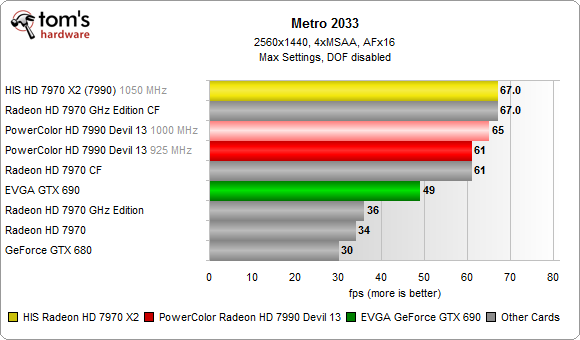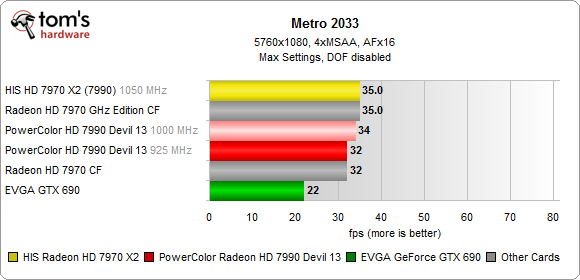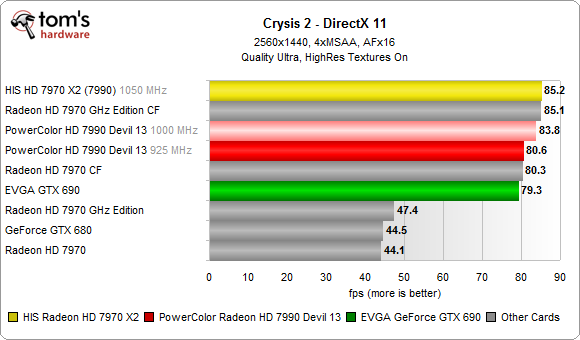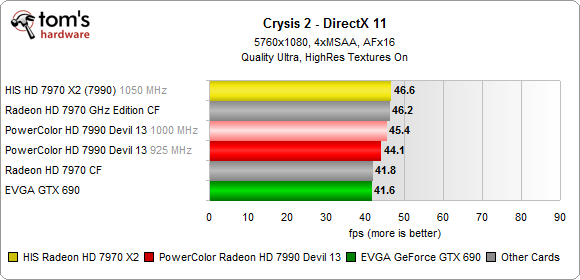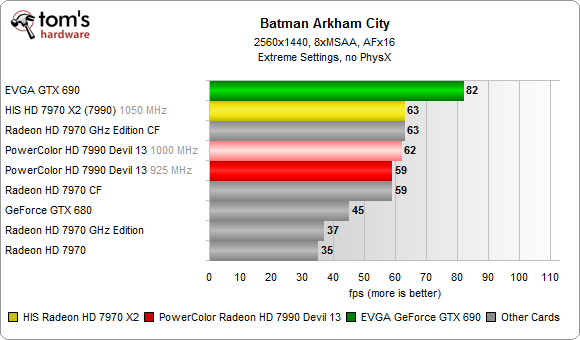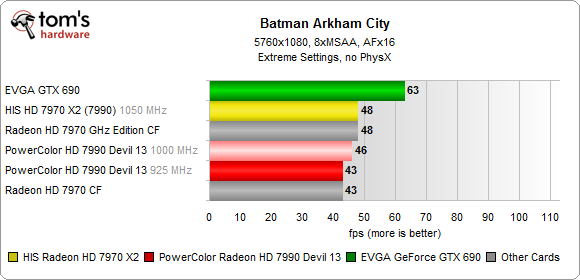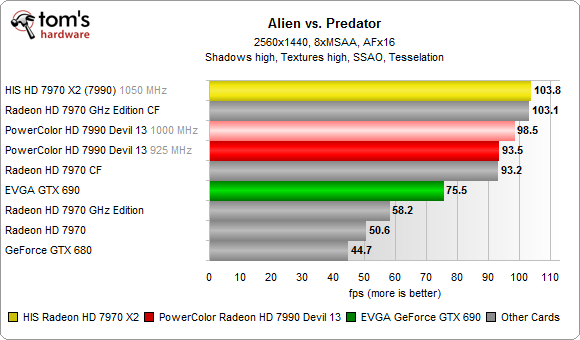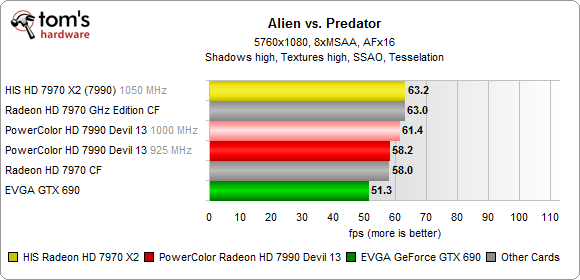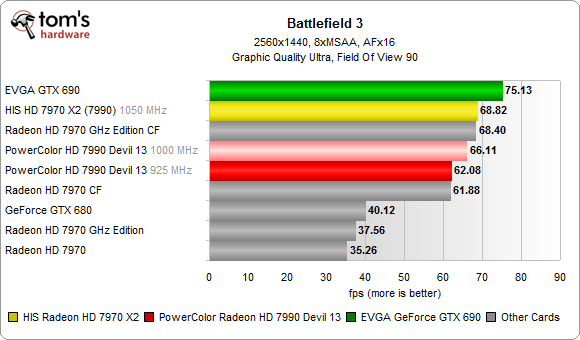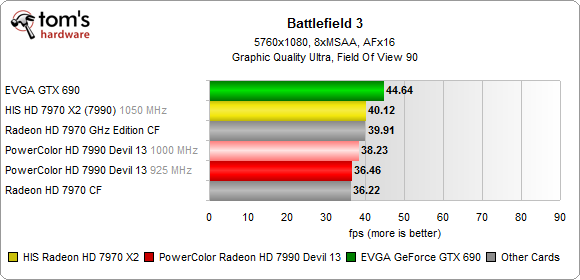Radeon HD 7990 And GeForce GTX 690: Bring Out The Big Guns
EVGA recently lent our German lab one of the GeForce GTX 690s we've had in the U.S. for months. The purpose? To pit against HIS' upcoming 7970 X2 and PowerColor's Devil13 HD7990, both dual-Tahiti boards vying to become the world's fastest graphics card.
Benchmark Results: Real-World Games
Based on your feedback, we're benchmarking these high-end cards using extreme quality settings and resolutions, including the multi-monitor setups they're designed to drive. This does limit the number of games we're able to test, since not all titles support Nvidia Surround and AMD Eyefinity.
What we notice is that the beta Catalyst 12.11 driver does, in fact, deliver a massive performance boost in a majority of the games we're testing. Nvidia only manages to maintain an advantage in long-time strongholds like Battlefield 3 and Batman: Arkham City, even though AMD jumps from 25 to 30 percent in Battlefield 3, practically making it a draw.
The gains in CrossFire configurations are a bit more moderate. We still don’t know how AMD is improving performance this much. Hopefully it isn't doing anything to graphics quality, as we've seen in the past (Do AMD's Radeon HD 7000s Trade Image Quality For Performance?). We aren't able to discern any difference at first glance, but we plan to take a closer look in an upcoming story. Unfortunately, overzealous German customs officials already did their part to make this story late by Googling for the price of a graphics card not yet on the market.
Metro 2033
Crysis 2: DirectX 11
Batman: Arkham City
Alien vs. Predator
Get Tom's Hardware's best news and in-depth reviews, straight to your inbox.
Battlefield 3
The massive performance difference between the Nvidia and AMD cards is gone in Battlefield 3, so long as you're talking about boards based on AMD's Graphics Core Next (GCN) architecture.
Whatever advantage Nvidia maintains has more to do with the game sequence we tested than generally-better performance. AMD manages to draw even or pull ahead in less-taxing workloads.
Nvidia’s SLI technology remains more effective in this game than AMD’s CrossFire. So, we're calling it a draw. To the delight of gamers, the days when you had to pick one vendor over the other for a good experience in Battlefield 3 are over.
Current page: Benchmark Results: Real-World Games
Prev Page Benchmark Results: Synthetics Next Page Micro-Stuttering: The Current Situation
Igor Wallossek wrote a wide variety of hardware articles for Tom's Hardware, with a strong focus on technical analysis and in-depth reviews. His contributions have spanned a broad spectrum of PC components, including GPUs, CPUs, workstations, and PC builds. His insightful articles provide readers with detailed knowledge to make informed decisions in the ever-evolving tech landscape
-
mayankleoboy1 IMHO, the GTX690 looks best. There is something really alluring about shiny white metallic shine and the fine metal mesh. Along with the fluorescent green branding.Reply
Maybe i am too much of a retro SF buff :) -
Ironslice What's the most impressive is that the GTX 690 was made by nVidia themselves and not an OEM. Very nice and balanced card.Reply -
thanks for the in depth analysis with adaptive V-sync and radeon pro helping with micro stutter.Reply
not to take away anything for the hard work performed; i would have liked have seen nvidia's latest beta driver, 310.33, included also to see if nvidia is doing anything to improve the performance of their card instead of just adding 3d vision, AO, and sli profiles. -
RazorBurn AMD's Dual GPU at 500+ Watts of electricity is out for me.. Too Much Power and Noise..Reply -
mohit9206 2 670's in sli is better than spending on a 690 and 2 7950's in Xfire is better than spending on a 7990. this way you save nearly $300 both waysReply
